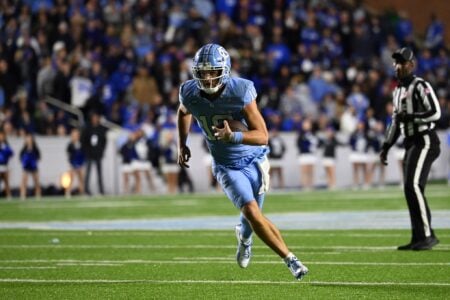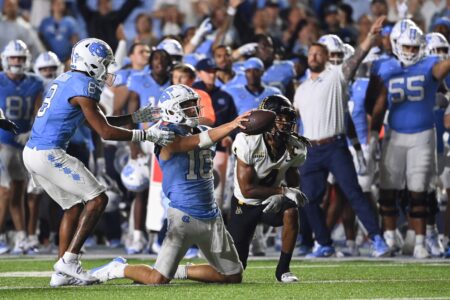Palm Beach Pats Fan
Pro Bowl Player
2019 Weekly Picks Winner
2020 Weekly Picks Winner
2021 Weekly Picks Winner
2022 Weekly Picks Winner
- Joined
- Jan 31, 2008
- Messages
- 10,622
- Reaction score
- 20,354
In the NFL, winning or losing the game in OT has only a very small correlation with having received or kicked off first in OT, under the new rules.
precisely speaking: Since the NFL instituted modified overtime rules, there have been 73 overtime games, including postseason and Monday Night Football. Three have been ties. In the other 70, the team that received the ball first won 38 of those, or 54.2 percent.
link:
Despite what Bill Belichick thinks, it is definitely better to start overtime with the ball
Apparently the first 65 such games had a 33/32 split. The linked article, though, makes a big deal about the updated 54% result (their mistake).
Is 54.2 percent really different from 50% or is it random variation? Can't say for sure, but if there is a correlation, it is very weak. Put another way, flip an unbiased coin 100 times and there's only an 8% chance you get exactly 50 heads. Getting 54 heads? It is a 6% chance. Not much difference.
It's hard to say how close to perfectly fair the current system is, until we have a larger sample size and see if 54% trends down toward 50% or stays put.

precisely speaking: Since the NFL instituted modified overtime rules, there have been 73 overtime games, including postseason and Monday Night Football. Three have been ties. In the other 70, the team that received the ball first won 38 of those, or 54.2 percent.
link:
Despite what Bill Belichick thinks, it is definitely better to start overtime with the ball
Apparently the first 65 such games had a 33/32 split. The linked article, though, makes a big deal about the updated 54% result (their mistake).
Is 54.2 percent really different from 50% or is it random variation? Can't say for sure, but if there is a correlation, it is very weak. Put another way, flip an unbiased coin 100 times and there's only an 8% chance you get exactly 50 heads. Getting 54 heads? It is a 6% chance. Not much difference.
It's hard to say how close to perfectly fair the current system is, until we have a larger sample size and see if 54% trends down toward 50% or stays put.
Last edited:


















